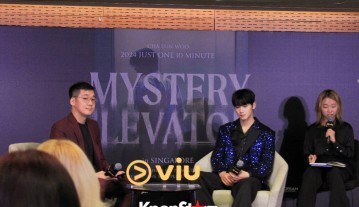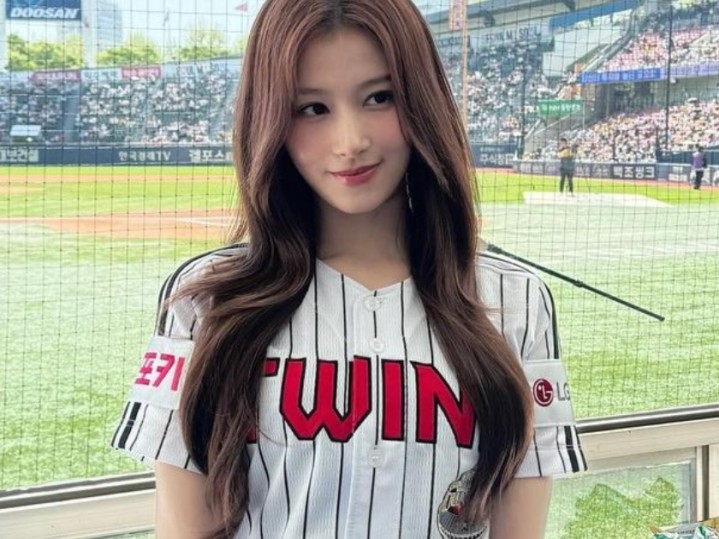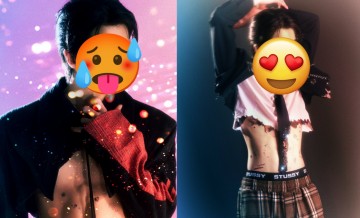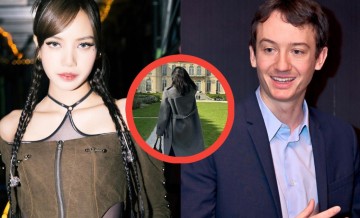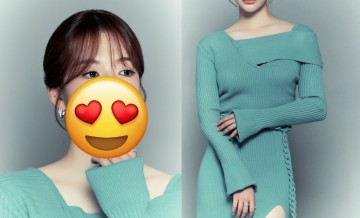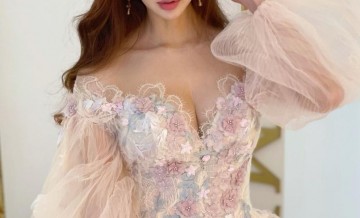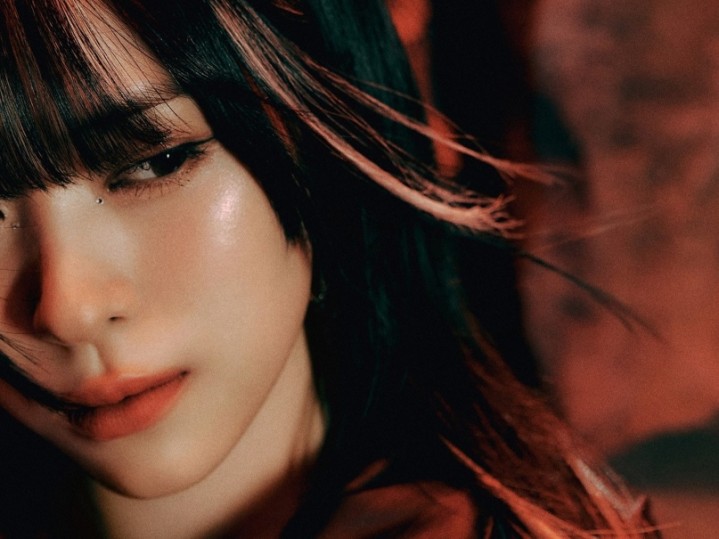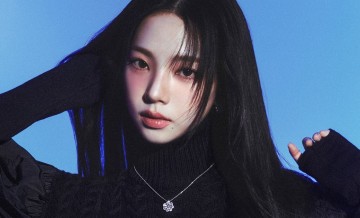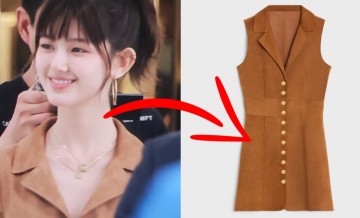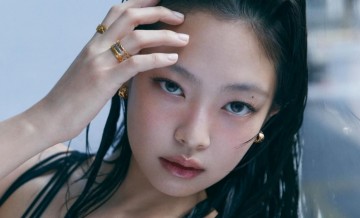An Interview With The Skating Lesson's Jenny Kirk And Dave Lease, Part 1: Criticisms, 'The Secret' And 'Pause'
Whether it's through their website, social media or video content, The Skating Lesson has managed to capture the spirit of figure skating for an online audience. Created by Jenny Kirk and Dave Lease to "unite the skating community and encourage its members to engage in stimulating discussion," they recently took the time to answer some burning questions inspired by their loyal fans.
You guys just finished your World Championships series. How are you guys feeling about this season with your content?
DAVE LEASE: I feel like this whole season went by really quickly. I think we're much more comfortable doing what we do now. In the beginning, it was an adjustment. When we started the show in 2013, we put together a Nationals show on a whim. We really hadn't planned it. And then we started doing recaps before Four Continents, and by Worlds that year, we started to get a rhythm in place. We did interviews during the off-season and then started the next fall, and then life got in the way and very busy.
During the Olympic season, there's so much fervor and fan emotions and federation emotions and everyone is so tense in the skating world. Anything we said would get such a reaction. It would be so emotional and we weren't even sure, like, "Do we respond to this? Do we not respond? Do we talk about this?" Even with our shows. Should we be funny or serious? What are people going to like? It really took a long time to find our niche. This season, we were just in alignment and we found our tone early on, and grew with that. I feel like it built throughout the year and our vision has really been unified. This season has felt really quick for me whereas the first year that we did it felt like 11 years. It was stressful in the beginning.
JENNY KIRK: We went really hard, really fast at the beginning of the Grand Prix. We just wanted to tape, tape, tape. We were watching every single thing and live tweeting and we would go and do a recap. This season we kind of took it more in our own hands. We're going to watch all the content, but we don't have to be tweeting and get really caught up in the emotions, particularly of the fans. Last season, people didn't maybe know exactly what to make of us. We're doing something that really hasn't been done in the sport. Now people are more used to our voices and what we're trying to do with TSL. Our interviewees have really been fantastic and have really been growing in terms of giving us so much of their honesty. We've kind of found our voice. [We're] keepin' it real but it's also more positive this season. It just reflects where Dave and I are at in our lives.
DL: We both have found the right balance for skating in our lives. In the beginning, I would skate a session in the morning, have a lesson, come home, shower, immediately sign on and film a guest or do an interview. I'd be drinking coffee all the time and just be exhausted. I was trying to skate around work. I had a really long commute. I got to a certain point last year during the Olympics, where I felt like all anyone ever talked to me about was skating. I reached a wall where I didn't want to talk about skating all the time. I felt like I needed to figure out who I was as a person when I didn't have to skate or film a show. I feel like this year, we both have more of a balance, and it's why this show has worked well.
JK: It's part of our lives but it isn't our whole lives.
This season, TSL started to touch on things related to positive thinking, mindfulness. Was there a particular catalyst for this shift?
JK: It started at Nationals. Some of our friends are into "The Secret," the Law of Attraction. I went through kind of a rough period this winter. Dave was a great friend; he was there with me through it all. I think wanting to add more positivity in our lives away from TSL kind of bled into everything. You start to see how it manifests in your life and how it really does work. It starts to affect every single aspect of your life. I did it and Dave's been reading the same books. We've been able to continue to do what we want, staying on-message, but adding a little more positive vibe to what we're saying at the same point.
DL: I used to work at a job I hated for a little over two years and I absolutely dreaded going to work every single day. Last summer, right before we started filming again, I had gotten a new job. I remember I went into it with a really positive mindset, thinking like this already happened, I'm the best candidate. I really tried to brainwash myself that it was going to happen. I just think I've been more receptive to that. I do a lot of yoga. My friend who got us into "The Secret" is doing yoga teacher training, so it's all kind of blended together for us.
The Skating Lesson is kind of a hybrid. I've seen fans digest it as a news source, a talk show, an interactive community channel. How do you guys define TSL and how do you draw the line between these spheres?
JK: Dave is very good. He always has his finger on the pulse of the skating world. We talk to skaters who are coaches and competitors, so we kind of know what's going on at all times. We do want TSL to be a place where people could come for news, but it's really important for us to create this sense of community where we can talk about the news but everybody's voices can be heard. That's something we've really pushed with our interviewees, that we want to showcase the personalities. So when someone comes on, if they want to talk for two hours, we will air the entire two hours. The thing that fans take away is they feel like they know these athletes again. They know these coaches.
We want for the skating fans, when they go on our Facebook and comment, that their voices can be heard as well. So it is kind of a blending of whatever we feel is relevant in terms of news, people that we feel are relevant (we find skaters like Mariah Bell; we see so much talent in her and we want to do what we can to really promote her personality this season) and also have the fans come in and have that interaction between ourselves, them and the Jillians and Bobs. There aren't barriers between our content and the audience, and there aren't barriers between the hosts and the athletes.
DL: You also have to look at the media in general. Cable news is obviously so popular and so prevalent in society. I work in a building where we have CNN in the elevators. Cable news really blended opinion with commentary with news.
JK: And entertainment.
DL: Yeah, [so] it's been done. Maybe it hasn't been done in skating, but it's been done in regular news for years. In morning shows, they inject their opinions slowly over time. Everyone has an opinion. People always want [us] to be unbiased, but no one is unbiased, so we're just more open about it. If you come from a place of authenticity about what your point of view is, people can either agree or disagree and be more comfortable with that. I think everyone is so used to being politically correct in skating. I don't think we try to be outrageous. I think we state our opinion, have fun with it and try to keep it in perspective, because at the end of the day, it is just skating. I think that's something that's important.
You guys share a lot of photos and videos online of athletes. It seems you guys have almost become a figure skating PR or marketing team. Is there a pressure to share as much content as possible to maintain relationships with athletes and keep the sport circulating online?
JK: We've just tapped into what we want to do. Skaters would just text us throughout the day. There's a bunch of content where they'll send us videos of themselves working on a quad and say, "This isn't ready yet but you guys can watch it." Skaters would come to us for feedback—music choices for the new season. I love these athletes. I love them so much; I want to do everything I can. If somebody sends me a video, we put it out there immediately to really promote them. That's going to continue to build. Personally, I don't feel pressure. I just feel excitement. We're just starting to do what could be really good for the skaters.
DL: It's also easy. I used to blog for years. I'm used to being tapped in 24/7. We're really tapped in with the athletes. I was seeing a musical last night and Jenny was texting in a group message. It's about this skater's coaching change and I can already tell you where he's going to go. His coach is going to the World Team Trophy; he's going to talk this one up. We know who the candidates are. We knew Hubbell and Donohue were going to move. We figured that out.
JK: Through a cryptic text message from somebody.
DL: From Zach Donohue, through a cryptic text message. We were setting up an interview and he said...
JK: He's plotting his next move.
DL: He's plotting his next move and we thought, that's interesting.
JK: We were reading between the lines.
DL: Then we were texting with Alissa Czisny and we said, "Zach Donohue is plotting his next move and he wants come on the show." I don't think he's picking, like, his new music for next season.
JK: And then Madison is dating somebody who's in Montreal.
DL: Then we figured out that's where Papadakis and Cizeron are. So it's almost fun for us. And now Alissa is a coach, so we text with her a lot and get another perspective. We're dialed in. Tom [Zakrajsek] wants to know how we get our information because he's freaked out that we know that Max [Aaron] is doing "Nessun Dorma" for his short and "Black Swan" for his long. We talk to skaters, choreographers, everything. It's a 24/7 job but we have passion for it, so it doesn't feel like work.
JK: Something that we learned from last season is that there has to be a boundary. Last year, we developed these relationships with some of the people we discuss and it felt like we had to protect some people, or we couldn't really keep it real about other people. We can "adopt" these skaters and care about them, but we're very selective about what we choose to discuss on-air to develop these relationships and to nurture them. We would never go out and say something that would affect these relationships, because it's a fine line between being a journalist and being somebody's close friend or being a part of their lives.
DL: I also think that skaters are more used to what we're doing. Look at Jillian and Bob. We liked their skating in 2013. We didn't like the vehicles that they picked last season. They were not in a good headspace last year. We could tell that because when we didn't like their programs, we got E-mails from them that they were annoyed that we didn't like their programs. This year I happened to like their work better. But overall, people are more used to us giving our opinions and our feedback.
JK: We're just two people. I think that's the thing too is that, we're not right. We're just saying what we think.
You've talked about receiving criticism or people telling you they didn't like something you said. Has your way of dealing with criticism changed in the last two and half seasons?
JK: We don't go on any blogs or websites. If someone says something about us, I don't want to know. Particularly since starting "The Secret." This morning someone tweeted something that I thought was mean, so I blocked them. I feel like when you put out that you don't want that stuff in your life, it won't come to you. If I feel like it's crossed a line personally, then you have to have that boundary. But for the most part, I think we guard ourselves from [it].
And we know if we're saying something from a bad place. Any criticism that we do, it's always constructive. It may sting and it may hurt as an athlete...and I'm very mindful as a skater. Everything somebody says about you, you're so sensitive and it's really difficult to take that. So I think we try to mitigate any tone that could be taken in a bad way. But we still have to state our opinions and be real about it.
DL: And it just helps [that] this is not an Olympic season. The level of stress is so down. Covering Mao [Asada] and Yuna [Kim] was such an emotional thing where you couldn't say one thing about one skater, positive or negative, without upsetting their fans. Everyone wants you to pick a side. I wrote a satirical post about how they both had imperfections and people either got it or they thought I was some terrible person.
Everything has been experience too. I was asked to interview Dick Button last year. I put it together in a night. They asked if I could do it that weekend and then all of a sudden Dick Button cancelled the next day. It's all happened that it doesn't sting as much as it did in the beginning. We've had experiences where there was a coach who rescheduled three times, and rescheduled my life to try to get that person. Every single time he went on to Skype, something else happened. We've just put everything in perspective and we've taken more control, where in the beginning, we were so happy if we had a guest. And now. we're going to schedule you and if you can't do it, we'll find someone else.
JK: And we'll see them again. That's the thing too. We have long-term goals, so everything isn't do-or-die for us anymore.
DL: Everything was so US-based and North America-based in the beginning because that's who we had relationships with. And as we've talked about more skaters, we've developed more of an international audience, which is something we really want. We don't just want to be US-focused because the sport is so global. That's why when a US lady hasn't been on the podium, it's not that big of a deal in that sense. We like to have an international community. We like the diversity of opinions. I think it makes the show more interesting and our fanbase more interesting, and it's really expanded us. There's Skype. We did an interview with Nathalie Péchalat. We interviewed Oleg [Vasiliev] from Moscow. We have other interviews coming up with so many different guests who are so interesting. It's just made the show more interesting for both of us.
JK: We appreciate it a lot.
TSL is known for coining catchphrases and nicknames like the Razzano, the Oda O, "pause." Did it just happen spontaneously or was this intentional?
JK: A lot of it is Dave. He's very good at reading people and knowing what sticks. We come away from an interview and we always stay on Skype and talk about it, and after Doug Razzano came on, Dave said, "Pause." Like, pause was his thing. And it was just one little thing that Doug said during the interview, but it stuck with Dave. He started texting it to people and it just became a thing. The same thing [with] the Oda O; it just popped into my head. These are very natural, and Dave is so good...the Jillian and Bob, Diva Wagner...
DL: Diva Wagner was completely spontaneous. I told Jenny from when I blogged before that Ashley always had a ton of drama. I knew she had a ton of drama in the skating rink. Hello! She got voted onto the Olympic team, like, that is so Ashley Wagner! Of course that would happen to Ashley. Of course she would win Nationals in spectacular fashion, go to Worlds again, and blow the short program. Ashley is always where the story is and you have to know your storylines. Polina is a storyline in her interviews, not really with her skating. But if Polina has a teleconference, I'm listening to that teleconference.
JK: We need to find a catchphrase for her next season.
DL: I have friends now that text me, "Polina said this, this and this." Gracie, with the pageant thing. Diva Wagner flew out during the interview when we were talking to her, and I think Ashley kind of got it too. She's self-aware. Jillian and Bob...I don't remember what exactly...
JK: It was sometime this winter.
DL: It was around NHK [Trophy]. I have a Jillian Michaels yoga DVD that I do sometimes. I was probably doing it that weekend and got Meagan Duhamel from that, in trying to describe how intense and scary she can be.
JK: We love her!
DL: Alissa Czisny is now Saint Alissa.
JK: She's going to be Saint Alissa from now on because Alissa Czisny is perfection.
DL: She never does anything wrong. If you follow Alissa on Instagram, she's always on some nature walk, taking pictures of some flower. She doesn't drink, she's always appropriate. She gets her opinions across, she has perfect grammar. She's always reading, she listens to books about perfectionism. Alissa is just perfect, so, Saint Alissa. If Alissa doesn't like someone, you know they're not a nice person. So you kind of have to read people.
Tara Lipinski being the new Gwyneth is also something that you have to appreciate. It's a little dicey bringing up Tara because people are still so angry that she won the Olympics and they don't like her. But Tara being a wealthy socialite in the city is also entertaining. This new blog venture is news. I don't believe she's actually writing it because I know Tara, but Tara being at Coachella...like, people need to know the real Tara. It's very entertaining. It makes people a little bit uncomfortable because she comes from so much money, and Tara's win makes people uncomfortable. But her being a commentator, having this new blog is where a story is.
Click here for part two of the interview.
